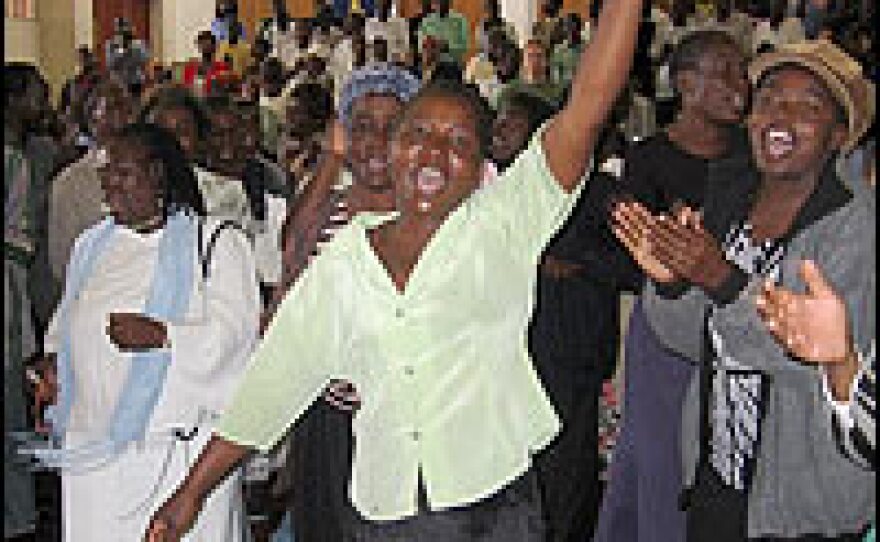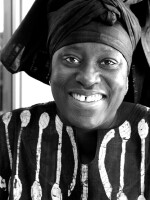
In Zimbabwe, hundreds of opponents of President Robert Mugabe's government gathered Tuesday to remember Gift Tandare, an opposition activist killed during a violent police crackdown. They renewed calls for Mugabe to step down.
In attendance were Western diplomats. Unlike the prayer rally earlier this month, security forces did not interfere with the ceremony. But Morgan Tsvangirai, the leader of the opposition, was arrested by police on Wednesday.
Amos Phiri of the National Constitutional Assembly, a coalition lobby group, read a tribute at the ceremony that said: "I think Tandare is a hero. Let his blood be our strength."
Lawrence Mashungu, of the Students Christian Movement for Zimbabwe, read a tribute that said: "Gift, we all know, was murdered in cold blood as he and thousands of peace-loving Zimbabweans tried to exercise their constitutional and God-given right to freedom of worship."
Tandare was killed on March 11, after police broke up an opposition rally and detained and allegedly beat up and tortured dozens of leaders and activists. Speaker after speaker pledged to continue to fight government repression.
"The government of Zimbabwe has failed the people," Mashungu said. "The economy has crumpled and the democratic space is shrinking each day."
Along with the prayers came the political messages. And Zimbabwe's main opposition, the Movement for Democratic Change, which has splintered into two factions, was called upon to unite ahead of elections scheduled next year.
President Mugabe has led the southern African nation since independence 27 years ago. He has said he wants to continue in power. And he dismisses the opposition as stooges of the West. His deputy information minister, Bright Matonga, blames the Movement for Democratic change for ratcheting up tensions.
"(So) they are panicking that Mugabe is coming back again. He is someone they cannot stand," Matonga said. "The MDC has added even a fourth dimension that they have to remove President Mugabe through violence."
Nonsense, says opposition leader, Morgan Tsvangirai, before his arrest on Wednesday. His right eye was clearly bloodshot and he was still nursing a swollen hand at the service Tuesday. The ceremony was Tsvangirai's first public address since the beatings earlier this month when he was arrested and then hospitalized with a suspected fractured skull and other wounds.
"We don't hate Mugabe. In fact, I think he needs psychiatric help. We are not talking of overthrow of a government," he said. "As Zimbabweans we have a constitutional right to democracy. There is no dictator in this world who has succeeded to oppress the people forever."
Listening were diplomats from Australia, Britain, Germany and the U.S. embassy in Harare. They are among the western countries calling for fresh sanctions on Zimbabwe after its strong-arm tactics against the opposition.
But at the memorial service, as she prayed and wept, Gift Tandare's widow was focused less on Zimbabwe's political battles and more on how she and her three young children will cope.
Sipiwe Mudariki Tandare said her late husband was the sole breadwinner for his entire extended family. And life for the average Zimbabwean has grown immeasurably tougher. Inflation is soaring at 1,700 percent, with 80 percent unemployment.
Copyright 2022 NPR. To see more, visit https://www.npr.org. 9(MDAzMjM2NDYzMDEyMzc1Njk5NjAxNzY3OQ001))







